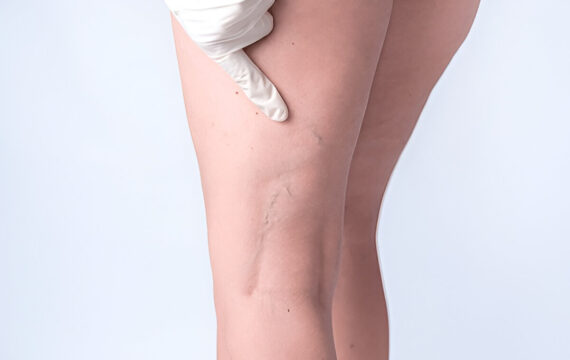Nerve problems, also known as neurological issues, can cause a range of symptoms from pain and numbness to muscle weakness and even loss of function. Given the complexity of the nervous system, finding the right doctor to diagnose and treat nerve problems is crucial for effective management and recovery. This guide will walk you through the steps to find the right specialist and what to expect during the process.
Understand the Basics of Nerve Problems
Before seeking medical help, it’s important to understand that nerve problems can originate from various conditions. Some common causes include:
- Pinched nerves due to herniated discs or arthritis
- Neuropathies (nerve damage) due to diabetes, infections, or autoimmune diseases
- Neuromuscular disorders like multiple sclerosis or muscular dystrophy
- Injuries such as traumatic nerve damage or carpal tunnel syndrome
Nerve problems can cause localized symptoms or impact multiple body parts, so the right diagnosis is the first step toward effective treatment.
Consult Your Primary Care Physician (PCP)
The journey to finding the right specialist often begins with your primary care physician. A PCP can perform an initial evaluation to assess the severity of your symptoms and help you decide whether a referral to a specialist is necessary. They may order basic tests like blood work or imaging scans to rule out certain conditions and provide an overview of your overall health.
Determine the Right Specialist
Once your PCP identifies that your nerve problems need specialized care, they will refer you to the appropriate doctor. Depending on your specific symptoms, you may need one of the following specialists:
- Neurologist: A neurologist specializes in diagnosing and treating disorders of the nervous system, including the brain, spinal cord, and nerves. They are often the go-to specialists for conditions like neuropathy, multiple sclerosis, Parkinson’s disease, and migraines.
- Neurosurgeon: If your nerve problem is caused by structural issues such as herniated discs, tumors, or nerve compression that might require surgery, a neurosurgeon is the specialist who performs procedures on the nervous system.
- Orthopedic Specialist: For nerve issues stemming from bone or joint problems, like pinched nerves in the spine or carpal tunnel syndrome, an orthopedic doctor might be involved.
- Physical Medicine and Rehabilitation (PM&R) Specialist: Also known as physiatrists, these specialists focus on improving your physical function through nonsurgical treatments. They may help you manage chronic pain or weakness due to nerve damage.
- Pain Management Specialist: If your nerve issue results in chronic pain, a pain management specialist can provide treatments like nerve blocks, medications, or other interventions to help control symptoms.
Research Credentials and Experience
When choosing a doctor, credentials, and experience are crucial factors to consider. Look for board-certified doctors who specialize in nerve-related issues. Board certification ensures that the doctor has met specific standards in education, skills, and training.
Additionally, ask about their experience treating patients with conditions similar to yours. Specialists who frequently deal with nerve issues are more likely to be up-to-date on the latest diagnostic tools and treatment options.
Evaluate the Doctor’s Approach to Treatment
Once you’ve found a specialist, it’s important to understand their approach to treatment. Nerve problems often require a multi-disciplinary approach that can include medications, physical therapy, lifestyle changes, and sometimes surgery.
Here are a few questions to ask during your initial consultation:
- What are the possible causes of my nerve symptoms?
- What tests do you recommend to confirm the diagnosis?
- What treatment options are available, and what are the potential risks or side effects?
- Will I need long-term treatment or follow-up care?
- Do you work with other specialists (e.g., physical therapists, pain management experts)?
A good doctor will not only diagnose and treat the problem but will also help you understand the root cause and give you a comprehensive plan for managing your condition.
Consider the Hospital or Clinic’s Reputation
The quality of the hospital or clinic where your specialist practices can also impact your care. Look for facilities that have strong neurology or orthopedic departments and advanced diagnostic and treatment technologies. You can research hospital ratings online or ask your doctor about the facility’s reputation for treating nerve-related issues.
Seek a Second Opinion if Necessary
If you’re unsure about a diagnosis or treatment plan, seeking a second opinion is a good idea. Nerve issues can be complex, and different specialists might have varying approaches. A second opinion can give you more clarity and confidence in your treatment plan.
Follow Through with Your Treatment Plan
After finding the right doctor, it’s important to stick to the prescribed treatment plan. Whether it involves medication, physical therapy, lifestyle changes, or even surgery, following your doctor’s advice is key to recovery. Nerve problems can take time to heal, so patience and consistency are essential.
Conclusion
Finding the right doctor for nerve problems is a critical step in managing your symptoms and improving your quality of life. Start by consulting your primary care physician, and then seek specialists who are experienced in diagnosing and treating nerve-related conditions. Research credentials, ask about treatment approaches, and feel free to seek a second opinion if needed. With the right medical support, you can effectively address nerve problems and regain control over your health.




